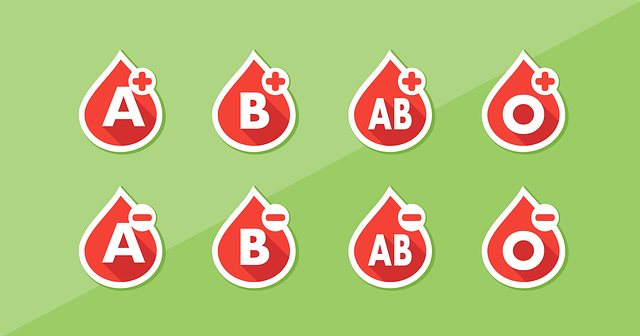Blood tests for vitamin deficiency are critical diagnostic tools that identify nutrient gaps in individuals globally. By measuring specific vitamin levels, healthcare providers can promptly diagnose deficiencies like B12, D, and iron, and tailor treatments to enhance well-being. These tests, crucial for proactive health management, help prevent complications and support overall nutritional balance. Regular screening, especially for at-risk groups, ensures timely intervention even without symptoms. Accurate diagnoses correlate test results with patient history and symptoms, guiding effective treatment and balanced diets for optimal health.
In today’s fast-paced world, understanding your body’s nutritional needs is crucial. Confidential blood tests for diagnosing vitamin deficiencies offer a straightforward way to assess your overall health. This article delves into the significance of these tests, exploring common vitamin deficits and their impact. We’ll guide you through the process, from interpreting results to next steps after a positive diagnosis. Discover how blood tests can empower you to make informed decisions about your well-being using key SEO keywords like ‘blood test for vitamin deficiency’.
- Understanding Vitamin Deficiencies: Common Deficits and Their Impact
- The Role of Blood Tests in Diagnosing Vitamin Shortfalls
- Types of Confidential Blood Examinations for Vitamins
- Interpreting Results: What Do the Numbers Mean?
- Next Steps After a Positive Diagnosis: Treatment and Prevention
Understanding Vitamin Deficiencies: Common Deficits and Their Impact
Vitamin deficiencies are a common yet often overlooked health concern, affecting millions worldwide. Understanding these deficiencies and their underlying causes is crucial for prompt diagnosis and effective treatment. Common vitamin deficits include deficiencies in Vitamin B12, D, and iron, each with distinct impacts on overall health.
A blood test for vitamin deficiency serves as a powerful tool to uncover these hidden issues. By analyzing specific biomarkers, healthcare professionals can identify which vitamins are lacking and develop tailored strategies to address them. This proactive approach ensures that individuals receive the necessary nutrients to support their well-being, preventing further complications and promoting optimal health.
The Role of Blood Tests in Diagnosing Vitamin Shortfalls
Blood tests play a pivotal role in diagnosing vitamin deficiencies, providing a direct and reliable method to assess an individual’s nutritional status. These tests measure the levels of specific vitamins in the blood, offering valuable insights into potential shortfalls. By analyzing samples, healthcare professionals can identify which vitamins are present in adequate or deficient quantities, allowing for tailored treatment plans.
The process involves taking a small sample of blood, typically from a vein in the arm, and sending it to a laboratory for analysis. Advanced techniques enable the detection of even trace amounts of vitamins, ensuring accurate diagnoses. Blood tests for vitamin deficiencies are crucial tools in preventive healthcare, enabling early intervention and supporting overall well-being.
Types of Confidential Blood Examinations for Vitamins
Confidential blood examinations play a pivotal role in diagnosing and managing vitamin deficiencies. These tests offer a straightforward and effective method to assess an individual’s nutritional status, enabling healthcare professionals to make informed decisions about treatment. There are several types of blood tests designed to detect specific vitamin deficiencies, each tailored to measure different vitamins and their levels in the body.
Common blood examinations for vitamin deficiencies include testing for Vitamin B12 and folate, which are crucial for red blood cell formation and nerve function. Another essential test is for Vitamin D, as it’s involved in bone health and immune system support. Additionally, healthcare providers may order tests for Vitamin C, A, E, and K to gain a comprehensive understanding of an individual’s overall nutritional well-being. These tests are often requested when symptoms like fatigue, weakness, or bleeding disorders persist, indicating potential vitamin deficiency.
Interpreting Results: What Do the Numbers Mean?
Interpreting results from a blood test for vitamin deficiency is crucial in diagnosing and managing any potential issues. Each vitamin has specific ranges that indicate optimal health, and values outside these can signal a deficiency or excess. For instance, vitamin D levels below 30 ng/mL (nanograms per milliliter) are often considered deficient, while excessive levels of vitamin B12 may suggest hypervitaminosis B12.
Doctors analyze these results in conjunction with symptoms and medical history to make accurate diagnoses. Low iron levels might indicate anemia, even if vitamin B12 and folate levels appear normal. Similarly, a blood test for vitamin D may reveal deficiency despite no apparent symptoms, highlighting the importance of regular screening, especially in individuals with dark skin tone or those who spend limited time outdoors.
Next Steps After a Positive Diagnosis: Treatment and Prevention
After receiving a positive diagnosis from a blood test for vitamin deficiency, the next crucial step is to initiate treatment. This often involves supplementing with the specific vitamin found to be lacking. For instance, if a vitamin B12 deficiency is detected, injections or oral supplements can help restore levels. It’s important to follow medical advice regarding dosage and duration of treatment.
Prevention is also key. Once the deficiency is addressed, regular monitoring through blood tests can help ensure it doesn’t recur. Maintaining a balanced diet rich in vitamins and minerals can go a long way in preventing future deficiencies. Additionally, lifestyle factors such as stress management and adequate sleep can support overall health, reducing the risk of nutrient imbalances.
Confidential blood tests play a pivotal role in diagnosing vitamin deficiencies, providing essential insights into an individual’s nutritional health. By utilizing these tests, healthcare professionals can identify specific vitamin shortfalls and tailor treatment plans accordingly. With proper interpretation of results, individuals can take proactive measures to manage their health and prevent further complications associated with vitamin deficiencies. This personalized approach, facilitated by blood tests for vitamin deficiency, empowers folks to make informed decisions about their well-being.
